|
cabaret voltaire, "methodology '74/'78. Attic tapes;"
Mute
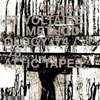 For Cabs collectors and fans of their Industrial Records-era music, this collection is a dream come true. Three CDs of unreleased songs and early versions are compiled at a surprisingly cheap cost. From the earliest material on the first disc, the sound quality is amazingly clear. Songs here run the gamut from fully realized tunes to plenty of half-assed noodling. At no point, however, even for the most minimal noodlings, is it ever dull. This -is- entertainment. (Especially the walking jazz tune "The Single," where lyrics include "come on kids let's jive," "come on girls, slide your feet," and plenty of "doo-doo doo-doo"s!) A document like this is evidence that Sheffield's finest haven't always been depressing anti-establishmentalists. Furthermore, hearing the (then) trio of Kirk, Mallinder and Watson play around with sound effects and layered spoken word bits is actually far more interesting on record to hear than a lot of the modern classical sounds of electronic composers that seem to be surfacing by the bucketloads lately. The Cabs clearly had a pop mentality to match their anti-pop tendencies and kept songs relatively brief and to-the-point. At some point, however, the sound bursts become songs, the instruments become learned, the skills become perfected. Sure, there's probably plenty of attic tapes from many bands' youths floating around, but, by the sax, guitar and keyboard echoes of "Magnet," something really cool is taking place and we're fortunate to be able to get documentation. It's a lot of material to wade through (53 songs in all) and not all of it is stellar. For a collection which claims to be all previously unreleased recordings, the version of "Do the Mussolini (Headkick)" on disc two mysteriously sounds as if it was mastered from a record with clicks and skips. It might have made more sense to include these alternate versions on the recent Original Sound of Sheffield comp as things like "No Escape," "Here She Comes Now," and "Nag, Nag, Nag" don't sound much different and appear on numerous releases already. I'm also getting sick of the recycled Designers Republic format for Cab Volt reissue material: the printing in my booklet is dreadful, with bleeding blurry grey text that's next to impossible to read on the greyscale background images—perhaps that's the point, but it's becoming a cheap cop-out. Furthermore, they keep listing web sites for Cabaret Voltaire that don't exist yet. This has been a trend since the late 1990s that continues to this day. The web site here at Brainwashed has remained the best web resource for all Cabaret Voltaire material and has not changed its URL since 1996, damnit! It's lame that they keep ignoring it for sites that aren't online! Okay, enough of my bitching, enjoy the four hours of great music and hope that things like Chance vs. Causality and other unreleased things are due out soon. - Jon Whitney
For Cabs collectors and fans of their Industrial Records-era music, this collection is a dream come true. Three CDs of unreleased songs and early versions are compiled at a surprisingly cheap cost. From the earliest material on the first disc, the sound quality is amazingly clear. Songs here run the gamut from fully realized tunes to plenty of half-assed noodling. At no point, however, even for the most minimal noodlings, is it ever dull. This -is- entertainment. (Especially the walking jazz tune "The Single," where lyrics include "come on kids let's jive," "come on girls, slide your feet," and plenty of "doo-doo doo-doo"s!) A document like this is evidence that Sheffield's finest haven't always been depressing anti-establishmentalists. Furthermore, hearing the (then) trio of Kirk, Mallinder and Watson play around with sound effects and layered spoken word bits is actually far more interesting on record to hear than a lot of the modern classical sounds of electronic composers that seem to be surfacing by the bucketloads lately. The Cabs clearly had a pop mentality to match their anti-pop tendencies and kept songs relatively brief and to-the-point. At some point, however, the sound bursts become songs, the instruments become learned, the skills become perfected. Sure, there's probably plenty of attic tapes from many bands' youths floating around, but, by the sax, guitar and keyboard echoes of "Magnet," something really cool is taking place and we're fortunate to be able to get documentation. It's a lot of material to wade through (53 songs in all) and not all of it is stellar. For a collection which claims to be all previously unreleased recordings, the version of "Do the Mussolini (Headkick)" on disc two mysteriously sounds as if it was mastered from a record with clicks and skips. It might have made more sense to include these alternate versions on the recent Original Sound of Sheffield comp as things like "No Escape," "Here She Comes Now," and "Nag, Nag, Nag" don't sound much different and appear on numerous releases already. I'm also getting sick of the recycled Designers Republic format for Cab Volt reissue material: the printing in my booklet is dreadful, with bleeding blurry grey text that's next to impossible to read on the greyscale background images—perhaps that's the point, but it's becoming a cheap cop-out. Furthermore, they keep listing web sites for Cabaret Voltaire that don't exist yet. This has been a trend since the late 1990s that continues to this day. The web site here at Brainwashed has remained the best web resource for all Cabaret Voltaire material and has not changed its URL since 1996, damnit! It's lame that they keep ignoring it for sites that aren't online! Okay, enough of my bitching, enjoy the four hours of great music and hope that things like Chance vs. Causality and other unreleased things are due out soon. - Jon Whitney
samples:
Mull Historical Society, "Us"
XL
 Few truly solo artists can produce an album with this kind of majesty. The last time we heard from Mull Historical Society was 2001's Loss, a carefully planned work and worthwhile listen, but featuring a bit too much extraneous nonsense. Two years later, founding member Alan Malloy has departed, leaving Colin MacIntyre to act on his own. Since they were his songs to begin with—Mull Historical Society has always worked from MacIntyre's extensive backlog of already-written songs—it seems like this shouldn't be that big a deal. Seeing the immense failure of other solo artist projects where other band members have departed tells otherwise. He could just as easily screw it all up instead of making an impressive record. Thankfully, here he manages the latter, as Us is my front-runner for album of the year at this point. Wonderful use of strings, piano, and bright guitars intermingle under MacIntyre's decidedly goofy voice, as he gives it all in these songs, playing out his emotions with no strings attached. Everything tends to briskly shuffle or jangle along with a great mix of instruments and subject matter. When things do slow down a bit, like on "Asylum," there's still a bright edge that could very well be a train at the other end of the tunnel. I didn't care, though, as long as it sounds this good, this complete. The album is great from conception to execution, even when MacIntyre shows off his trademark odd sense of humor on tracks like "The Supermarket Strikes Back." This is a transition point, where an artist makes or breaks themselves based upon past experience, and MHS blows right past it without a care in the world. I could listen to ten records of this and still not get enough. - Rob Devlin
Few truly solo artists can produce an album with this kind of majesty. The last time we heard from Mull Historical Society was 2001's Loss, a carefully planned work and worthwhile listen, but featuring a bit too much extraneous nonsense. Two years later, founding member Alan Malloy has departed, leaving Colin MacIntyre to act on his own. Since they were his songs to begin with—Mull Historical Society has always worked from MacIntyre's extensive backlog of already-written songs—it seems like this shouldn't be that big a deal. Seeing the immense failure of other solo artist projects where other band members have departed tells otherwise. He could just as easily screw it all up instead of making an impressive record. Thankfully, here he manages the latter, as Us is my front-runner for album of the year at this point. Wonderful use of strings, piano, and bright guitars intermingle under MacIntyre's decidedly goofy voice, as he gives it all in these songs, playing out his emotions with no strings attached. Everything tends to briskly shuffle or jangle along with a great mix of instruments and subject matter. When things do slow down a bit, like on "Asylum," there's still a bright edge that could very well be a train at the other end of the tunnel. I didn't care, though, as long as it sounds this good, this complete. The album is great from conception to execution, even when MacIntyre shows off his trademark odd sense of humor on tracks like "The Supermarket Strikes Back." This is a transition point, where an artist makes or breaks themselves based upon past experience, and MHS blows right past it without a care in the world. I could listen to ten records of this and still not get enough. - Rob Devlin
samples:
Ralph Myerz & the Jack Herren Band, "a Special Album"
Emperor Norton
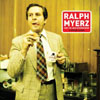 Despite their unwieldy name which suggests a rather sizeable ensemble, this Norwegian group is in actuality a trio comprised of DJ Erlend Sellevold (aka Ralph Myerz) and his cohorts Tarjei Strom and Thomas Lonnheim. This, their debut full-length, which is heavily influenced by '60s and '70s film scores, has already placed the band high on the charts in their native land. In fact, Ralph Myerz & Co. borrowed parts of their moniker from sleazemaster Russ Meyer and his cameraman, Jack Herren, as a result of their fixation upon the soundtracks for Meyers' films when the group initially came together.
Despite their unwieldy name which suggests a rather sizeable ensemble, this Norwegian group is in actuality a trio comprised of DJ Erlend Sellevold (aka Ralph Myerz) and his cohorts Tarjei Strom and Thomas Lonnheim. This, their debut full-length, which is heavily influenced by '60s and '70s film scores, has already placed the band high on the charts in their native land. In fact, Ralph Myerz & Co. borrowed parts of their moniker from sleazemaster Russ Meyer and his cameraman, Jack Herren, as a result of their fixation upon the soundtracks for Meyers' films when the group initially came together.
A Special Album, although it sounds very sample-based, is primarily played live. The second track, "Nikita," the single that broke the band and was quickly snapped up by Volkswagen execs for use in an advertisement, contains a sample of "Sexy Girls" from Gert Wilden's score to Maedchen die nach Muenchen kommern that is used to maximum dreamy effect. RM&JH are indeed impressive musicians in their own right, and play a variety of keyboards, synthesizers, and an assortment of percussive instruments. Assisting them on a few of the tracks are two female vocalists who provide an extra sexy punch to songs like "Casino" and "Think Twice," which are among the strongest on the album. At times, the sound recalls the laid-back funk of Monk & Canatella, while "You Never Come Closer" is an ethereal nod to trip hop on a film noir bender.
Perhaps A Special Album's only weak spot lies in the fact that, by the time the last three songs roll around, the band seem to be running out of ideas. By all means, it's still extremely listenable, but as the record winds down, the ear-catching quality that it opened with begins to evaporate. That said, RM&JH are without doubt one of the most entertaining new bands of the year. All in all, their debut is not exactly groundbreaking, but is nonetheless a fun, upbeat listen. - Jessica Tibbits
samples:
PAPA M, "ONE"
Drag City
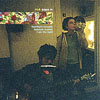 Dave Pajo has been quite busy lately as a member of Zwan. To make time for his own project, Papa M, he's taken to writing and recording in various cities while on tour and releasing the end result as a collection of CD singles: something he refers to as an audio tour diary. Disc one in this series is comprised of three tracks recorded in Chicago, Bloomington, and Pajo's hometown of Louisville. The relaxed pickin' feel of "Flashlight Tornado" comes off with somewhat of a back-to-basics, coffeehouse approach of acoustic guitar, voice and harmonica. The beautifully re-worked "Beloved Woman" (originally from 2002's Whatever, Mortal) opens with a near-violent layering of cello and violin which then drone throughout the tune's progressions with a eerie seductiveness that brings gooseflesh. In keeping with the Songs of Mac EP, Pajo closes out with his arrangement of another writer's song. The Reverend Gary Davis' "I Am the Light of This World" is a laid back, minor-key strummy guitar number augmented with sitar sounds and minimal keyboard with religious imagery that Pajo conveys very convincingly. As it's always a pleasure to hear Papa M, hearing the stripped down, bare bones take on these tunes is all the more special as the focus is more on the solo artist instead of the full group effort. - Gord Fynes
Dave Pajo has been quite busy lately as a member of Zwan. To make time for his own project, Papa M, he's taken to writing and recording in various cities while on tour and releasing the end result as a collection of CD singles: something he refers to as an audio tour diary. Disc one in this series is comprised of three tracks recorded in Chicago, Bloomington, and Pajo's hometown of Louisville. The relaxed pickin' feel of "Flashlight Tornado" comes off with somewhat of a back-to-basics, coffeehouse approach of acoustic guitar, voice and harmonica. The beautifully re-worked "Beloved Woman" (originally from 2002's Whatever, Mortal) opens with a near-violent layering of cello and violin which then drone throughout the tune's progressions with a eerie seductiveness that brings gooseflesh. In keeping with the Songs of Mac EP, Pajo closes out with his arrangement of another writer's song. The Reverend Gary Davis' "I Am the Light of This World" is a laid back, minor-key strummy guitar number augmented with sitar sounds and minimal keyboard with religious imagery that Pajo conveys very convincingly. As it's always a pleasure to hear Papa M, hearing the stripped down, bare bones take on these tunes is all the more special as the focus is more on the solo artist instead of the full group effort. - Gord Fynes
samples:
ellen allien, "Berlinette"
Bpitch Control
 Anybody with software can glitch and nearly anybody with a drum machine and sequencing keyboard can make a dance record, but to twist the machines into a modern electronic pop masterpiece requires a healthy amount of both talent and skill. This, the Bpitch Control label matriarch's third full-length album, is a perfect example. From the beginning, there's no time wasted. Crushing dancefloor beats are introduced, and before long are finely matched with shimmering multi-instrumental instrumentation and Ellen's almost magical voice: never obtrusive, never rubbing off the wrong way, and never lacking in the catchy tune department. A dance record to take home is an uncommon concept from a label which is known for its heavy singles output, but the ample usage of differing tempos, sprinklings of guitar work, instrumental and acapella songs, makes this a great album for home, car, or work situations. With every listen, there's new things to notice, as the songs rarely take predictable, overused routes. Fear not the high brow, however, as there's plenty of ass shaking and tush pushing with the higher energy dance cuts. - Jon Whitney
Anybody with software can glitch and nearly anybody with a drum machine and sequencing keyboard can make a dance record, but to twist the machines into a modern electronic pop masterpiece requires a healthy amount of both talent and skill. This, the Bpitch Control label matriarch's third full-length album, is a perfect example. From the beginning, there's no time wasted. Crushing dancefloor beats are introduced, and before long are finely matched with shimmering multi-instrumental instrumentation and Ellen's almost magical voice: never obtrusive, never rubbing off the wrong way, and never lacking in the catchy tune department. A dance record to take home is an uncommon concept from a label which is known for its heavy singles output, but the ample usage of differing tempos, sprinklings of guitar work, instrumental and acapella songs, makes this a great album for home, car, or work situations. With every listen, there's new things to notice, as the songs rarely take predictable, overused routes. Fear not the high brow, however, as there's plenty of ass shaking and tush pushing with the higher energy dance cuts. - Jon Whitney
samples:
California Oranges, "Oranges and Pineapples"
Darla
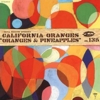 Fear not: although many of the favored indie rock bands of yesteryear have either folded, made disappointing returns, or just flat disappeared, some are restructuring and returning all the better for it. Holiday Flyer, the pop group founded by brother and sister John and Katie Conley, have split into two groups, with each sibling recording their songs with the same backing band, just under two different monikers. California Oranges is John's project, with Verna Brock from later Holiday Flyer albums serving as the vocal partner and bassist. Twins Matt and Ross Levine round out the group, and the sound is not what you'd expect from Conley, but that's exactly the point. He's turned up the volume on the guitars to blow you off of your couch, but, luckily, he's decided that the harmonies need to stay. I must say that's one of the things I still enjoy most about indie power pop bands: where the prevailing wisdom of today's singers is to trill and warble their way through songs in some apparent impressive display of vocal control, power pop just lets it slide and speak for itself. There's no remarkable vocal skill being shown here, and no need for histrionics. It's just powerful feel-good music. "Broken Typewriter" starts the album off with a bang, and it doesn't let up once, hardly giving you time to catch your breath. Occasionally, the tempo slows, as on "Come Back Now," but throughout Conley and Brock reveal lovely interplay, though Brock's vocals could have used more volume in the mix here and there. Clean guitar tones and a solid rhythm section make for smooth sailing, too, so there's hardly a misstep. California Oranges just rock, and Oranges and Pineapples is a solid debut with plenty worth a repeat listen. - Rob Devlin
Fear not: although many of the favored indie rock bands of yesteryear have either folded, made disappointing returns, or just flat disappeared, some are restructuring and returning all the better for it. Holiday Flyer, the pop group founded by brother and sister John and Katie Conley, have split into two groups, with each sibling recording their songs with the same backing band, just under two different monikers. California Oranges is John's project, with Verna Brock from later Holiday Flyer albums serving as the vocal partner and bassist. Twins Matt and Ross Levine round out the group, and the sound is not what you'd expect from Conley, but that's exactly the point. He's turned up the volume on the guitars to blow you off of your couch, but, luckily, he's decided that the harmonies need to stay. I must say that's one of the things I still enjoy most about indie power pop bands: where the prevailing wisdom of today's singers is to trill and warble their way through songs in some apparent impressive display of vocal control, power pop just lets it slide and speak for itself. There's no remarkable vocal skill being shown here, and no need for histrionics. It's just powerful feel-good music. "Broken Typewriter" starts the album off with a bang, and it doesn't let up once, hardly giving you time to catch your breath. Occasionally, the tempo slows, as on "Come Back Now," but throughout Conley and Brock reveal lovely interplay, though Brock's vocals could have used more volume in the mix here and there. Clean guitar tones and a solid rhythm section make for smooth sailing, too, so there's hardly a misstep. California Oranges just rock, and Oranges and Pineapples is a solid debut with plenty worth a repeat listen. - Rob Devlin
samples:
The Flaming Lips, "Finally, The Punk Rockers Are Taking ACID" & "The Day They Shot A Hole In The Jesus EGG"
Restless/Rykodisc
With all the attention and surgence of popularity of Flaming Lips, it's unsurprising that their older, pre-Warner Bros. material (which has become increasingly harder to find) has been reissued through Restless and Rykodisc. The good news is that there is a fairly large amount pure musical gold in the older material, and that these releases bring some attention to that. The bad news is that the early collection, Finally, The Punk Rockers Are Taking ACID, is pretty much fans-only material. It's not bad, but it's probably not what casual fans are going expect or even grow to like.
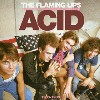 The 3 CDs that make up ACID are packed with extras and b-sides, but overall, it's all pretty raw. It's like the first EP, which makes up the first five tracks on the first disc, sung by Mark Coyne (Wayne's brother who later left the band). It's great if you're a fan, with a cover of Sonic Youth's "Death Valley '69," Neil Young's "After The Gold Rush," along with some classic Flaming Lips songs like "One Million Billionth Of A Millisecond On A Sunday Morning." The majority of the material from the 3 disc set comes from the band's first few albums, Hear It Is, OH MY GAWD!!!...The Flaming Lips and Telepathic Surgery. The only concession to space seems to be "Hell's Angel's Cracker Factory," edited down from 20+ minutes to three. Excellent liner notes by head Lip, Wayne, round out the set as a real gem. A cheaper, more compact overview of the pre-Warner bros. Flaming Lips, 1984-1990, is also available on Restless.
The 3 CDs that make up ACID are packed with extras and b-sides, but overall, it's all pretty raw. It's like the first EP, which makes up the first five tracks on the first disc, sung by Mark Coyne (Wayne's brother who later left the band). It's great if you're a fan, with a cover of Sonic Youth's "Death Valley '69," Neil Young's "After The Gold Rush," along with some classic Flaming Lips songs like "One Million Billionth Of A Millisecond On A Sunday Morning." The majority of the material from the 3 disc set comes from the band's first few albums, Hear It Is, OH MY GAWD!!!...The Flaming Lips and Telepathic Surgery. The only concession to space seems to be "Hell's Angel's Cracker Factory," edited down from 20+ minutes to three. Excellent liner notes by head Lip, Wayne, round out the set as a real gem. A cheaper, more compact overview of the pre-Warner bros. Flaming Lips, 1984-1990, is also available on Restless.
Samples:
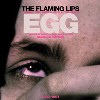 The Day They Shot A Hole In The Jesus EGG on the other hand, is a 2-disc set made up of the In A Priest Driven Ambulance album (and some extras) and a CD version of the often-bootlegged Mushroom Tapes (demos and outtakes from the In A Priest Driven Ambulance period). The album itself is the first truly great Flaming Lips record and the last before they went to Warner Bros. and is in many ways, the pinnacle of the Flaming Lips' pre-Warner/punk days. It included the addition of another guitarist, Jonathan Donahue (later in Mercury Rev) and it was also the first time they worked with Dave Fridman, who would help the band sculpt itself into what it has become (this album was his senior year thesis in college.) There are moments of brilliance scattered casually all over the album: the ambient cricket sounds and passing cars on "There You Are" are because the band recorded the acoustic guitars in the middle of the night in a grocery store parking lot near a highway; Wayne's off-key singing which give the songs an earnest feel they would otherwise lack; and the use of Jesus as a "something to believe in" stand-in rather than as a religious signifier. The original In A Priest Driven Ambulance album closed off with a lopsided, but very (unintentionally) sweet cover of "What A Wonderful World," but this expanded version has a few more extras, including a medley of The Sonics' "Strychnine," and "(What's So Funny 'Bout) Peace, Love & Understanding." The second disc has a fair amount of really cool outtakes, including a slide guitar jam that later became "There You Are." Also included are the two versions of one of Priest Driven Ambulance's highlights, "Five Stop Mother Superior Rain." One is made up of three minutes of feedback drones, the other twice as long and with a lovely piano line, while the original on the first disc has melodic guitar lines instead of the piano. For a bonus disc, it fulfils its purpose remarkably well—alongside the "Priest Driven Ambulance," the discs compliment each other beautifully in a way that they couldn't alone. - David Piniella The Day They Shot A Hole In The Jesus EGG on the other hand, is a 2-disc set made up of the In A Priest Driven Ambulance album (and some extras) and a CD version of the often-bootlegged Mushroom Tapes (demos and outtakes from the In A Priest Driven Ambulance period). The album itself is the first truly great Flaming Lips record and the last before they went to Warner Bros. and is in many ways, the pinnacle of the Flaming Lips' pre-Warner/punk days. It included the addition of another guitarist, Jonathan Donahue (later in Mercury Rev) and it was also the first time they worked with Dave Fridman, who would help the band sculpt itself into what it has become (this album was his senior year thesis in college.) There are moments of brilliance scattered casually all over the album: the ambient cricket sounds and passing cars on "There You Are" are because the band recorded the acoustic guitars in the middle of the night in a grocery store parking lot near a highway; Wayne's off-key singing which give the songs an earnest feel they would otherwise lack; and the use of Jesus as a "something to believe in" stand-in rather than as a religious signifier. The original In A Priest Driven Ambulance album closed off with a lopsided, but very (unintentionally) sweet cover of "What A Wonderful World," but this expanded version has a few more extras, including a medley of The Sonics' "Strychnine," and "(What's So Funny 'Bout) Peace, Love & Understanding." The second disc has a fair amount of really cool outtakes, including a slide guitar jam that later became "There You Are." Also included are the two versions of one of Priest Driven Ambulance's highlights, "Five Stop Mother Superior Rain." One is made up of three minutes of feedback drones, the other twice as long and with a lovely piano line, while the original on the first disc has melodic guitar lines instead of the piano. For a bonus disc, it fulfils its purpose remarkably well—alongside the "Priest Driven Ambulance," the discs compliment each other beautifully in a way that they couldn't alone. - David Piniella
samples:
Ingram Marshall, "IKON and Other Early Works"
New World
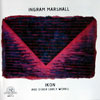 Sitting uncomfortably wherever it is that minimalism overlaps with both new age and American academic experimentation, Ingram Marshall is a bit of a baffler. I liked Fog Tropes when I first heard it on the radio way back in my college days but discovered, when I bought a disk of it not so long ago, that I had grown out of it, as I have with most minimalism. The other works on that New Albion disk had decidedly off-putting new age spiritual cheese going on. However, the sleeve notes that Marshall wrote for the CD of Charlemange Palestine's Schlingen Blängen convince me that it misses the mark to dismiss him as a secondary figure in commercial minimalism with a bit of a spiritual bent. Present as a young man in the New York minimalist scene of the '60s, Marshall had good connections and began experimenting with tape and electronic music and has kept it up since. This CD documents his tape and electronic output during the years of minimalism's downfall in the 1970s as nascent neo-romantic composers like Reich and Glass co-opted it for their own ends and gave it a capital M. Five of the seven pieces are tape compositions based on human voices, using repetition and electronic manipulation to build up eerie artificial sound spaces. These pieces range from the quite effective Cortez (see Brain v06i16) to the rather unconvincing Weather Report and suggest that Marshall was sincere and committed to working hard with very limited personal artistic resources. However, the remaining two pieces, Rop på fjellet and Sibelius in His Radio Corner, lay bare Marshall's abject skills in harmony and melody with run-for-cover embarrassing horribleness. An artist has to both cultivate and rely upon his or her voice of artistic conscience—that little Jiminy Cricket voice that whispers in your ear "Dude, that kinda sucks. Keep it to yourself and work on something else instead." This voice is one of an artist's most crucial assets. I think Marshall, deceived by the success of his music with those New Albion type audiences, allowed himself to overrule his conscience a few times too often to maintain credibility. This CD shows that, unlike many other less than entirely great composers, this wasn't just a problem reserved for his later years. - tom worster
Sitting uncomfortably wherever it is that minimalism overlaps with both new age and American academic experimentation, Ingram Marshall is a bit of a baffler. I liked Fog Tropes when I first heard it on the radio way back in my college days but discovered, when I bought a disk of it not so long ago, that I had grown out of it, as I have with most minimalism. The other works on that New Albion disk had decidedly off-putting new age spiritual cheese going on. However, the sleeve notes that Marshall wrote for the CD of Charlemange Palestine's Schlingen Blängen convince me that it misses the mark to dismiss him as a secondary figure in commercial minimalism with a bit of a spiritual bent. Present as a young man in the New York minimalist scene of the '60s, Marshall had good connections and began experimenting with tape and electronic music and has kept it up since. This CD documents his tape and electronic output during the years of minimalism's downfall in the 1970s as nascent neo-romantic composers like Reich and Glass co-opted it for their own ends and gave it a capital M. Five of the seven pieces are tape compositions based on human voices, using repetition and electronic manipulation to build up eerie artificial sound spaces. These pieces range from the quite effective Cortez (see Brain v06i16) to the rather unconvincing Weather Report and suggest that Marshall was sincere and committed to working hard with very limited personal artistic resources. However, the remaining two pieces, Rop på fjellet and Sibelius in His Radio Corner, lay bare Marshall's abject skills in harmony and melody with run-for-cover embarrassing horribleness. An artist has to both cultivate and rely upon his or her voice of artistic conscience—that little Jiminy Cricket voice that whispers in your ear "Dude, that kinda sucks. Keep it to yourself and work on something else instead." This voice is one of an artist's most crucial assets. I think Marshall, deceived by the success of his music with those New Albion type audiences, allowed himself to overrule his conscience a few times too often to maintain credibility. This CD shows that, unlike many other less than entirely great composers, this wasn't just a problem reserved for his later years. - tom worster
samples:
Monopot, "Optipess"
smalltown supersound
 With guitars, electronics and some light percussion, Norwegian band Monopot make some of the quietest, sweetest music I've heard in a while. They avoid the bombast of other ambient post-rock bands like Mogwai, GYBE or Low but their second disc, "Optipess" is at least as good as anything by your those bands. The distinctive feature that sets Monopot apart is their minimalism. Optipess has a cover of Cockney Rebel's 70's semi-hit, "Sebastian", which helps drive the minimalist point home: By listening to something that they've altered, you get to hear where they're coming from, and where they're trying to go. Where there were cocky, playful vocals backed with a glorious choir there are now shy, whispered vocals. The string and horn crescendos of the original become a reverbed melancholic guitar playing a head-nodding version of the melody and then circling back on itself. Monopot's original material is much the same: slow, minimal, soothing. "Scena Napoletana"'s low, mellow guitar tones and gentle singing on top of low drones and the guitar's pace-keeping are like a short, gentle lullaby. My only complaint about the disc is that it's only 40 minutes long, and by the time I got to the end of the disc I wanted the music to keep going.- David Piniella
With guitars, electronics and some light percussion, Norwegian band Monopot make some of the quietest, sweetest music I've heard in a while. They avoid the bombast of other ambient post-rock bands like Mogwai, GYBE or Low but their second disc, "Optipess" is at least as good as anything by your those bands. The distinctive feature that sets Monopot apart is their minimalism. Optipess has a cover of Cockney Rebel's 70's semi-hit, "Sebastian", which helps drive the minimalist point home: By listening to something that they've altered, you get to hear where they're coming from, and where they're trying to go. Where there were cocky, playful vocals backed with a glorious choir there are now shy, whispered vocals. The string and horn crescendos of the original become a reverbed melancholic guitar playing a head-nodding version of the melody and then circling back on itself. Monopot's original material is much the same: slow, minimal, soothing. "Scena Napoletana"'s low, mellow guitar tones and gentle singing on top of low drones and the guitar's pace-keeping are like a short, gentle lullaby. My only complaint about the disc is that it's only 40 minutes long, and by the time I got to the end of the disc I wanted the music to keep going.- David Piniella
samples:
ASMUS TIETCHENS / JON MUELLER "7 StÜcke"
Auf Abwegen
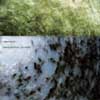 Asmus Tietchens collaborated with American drummer Jon Mueller for this trip to the studio, which translates as "7 Pieces." You can recognize the drum sounds in the first few pieces on the CD, but by the third piece the percussion has either been manipulated beyond recognition by Tietchens, or else Mueller is not drumming anymore—maybe he is making those sounds of objects being dragged and scraped across a surface? It's hard to tell, but it may a pleasant journey through all seven pieces for those who enjoy musique concrète. It's difficult listening for the rest of us—I was even getting bored part way through, but by listening all the way to the end, I found sound enjoyable parts, especially pieces 5 through 7. I'm also extremely fond of the occasional "buzz-pop" noise—it's clearly the sound of a patch cable being disconnected, with the quick "it's not grounded" buzz sound followed by the "pop" of disconnection. What might be regarded by others as a mistake that should be edited out, is instead considered part of the sound manipulation. - Ampersandy
Asmus Tietchens collaborated with American drummer Jon Mueller for this trip to the studio, which translates as "7 Pieces." You can recognize the drum sounds in the first few pieces on the CD, but by the third piece the percussion has either been manipulated beyond recognition by Tietchens, or else Mueller is not drumming anymore—maybe he is making those sounds of objects being dragged and scraped across a surface? It's hard to tell, but it may a pleasant journey through all seven pieces for those who enjoy musique concrète. It's difficult listening for the rest of us—I was even getting bored part way through, but by listening all the way to the end, I found sound enjoyable parts, especially pieces 5 through 7. I'm also extremely fond of the occasional "buzz-pop" noise—it's clearly the sound of a patch cable being disconnected, with the quick "it's not grounded" buzz sound followed by the "pop" of disconnection. What might be regarded by others as a mistake that should be edited out, is instead considered part of the sound manipulation. - Ampersandy
samples:
THOMAS KÖNER / ASMUS TIETCHENS "Kontakt der JÜnglinge: -1"
Die Stadt
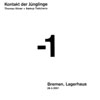 "Kontakt der Jünglinge" is the title of each CD in a series of collaborations between Tietchens and Köner. Like 1, -1 was recorded live at the Lagerhaus in Bremen. One day I listened to two Tietchens CDs in sequence: 7 Stücke followed by -1. At first, -1 sounded like a continuation of 7 Stücke, opening with sounds of objects being dragged/scraped along a surface. But -1 quickly builds up dense layers of sound, unlike the rather sparse 7 Stücke. The breezy drones provide a background to a variety of noise from industrial grinds to crystalline ringing sounds. About halfway through this 46-minute piece, we are even treated to some vocals! Okay, it's just someone reciting a numeral here and there, but it's all lovely and fun. I look forward to hearing something equally enticing when this duo performs at the MUTEK festival in Montréal on Wednesday, May 28. (www.mutek.ca) - Ampersandy
"Kontakt der Jünglinge" is the title of each CD in a series of collaborations between Tietchens and Köner. Like 1, -1 was recorded live at the Lagerhaus in Bremen. One day I listened to two Tietchens CDs in sequence: 7 Stücke followed by -1. At first, -1 sounded like a continuation of 7 Stücke, opening with sounds of objects being dragged/scraped along a surface. But -1 quickly builds up dense layers of sound, unlike the rather sparse 7 Stücke. The breezy drones provide a background to a variety of noise from industrial grinds to crystalline ringing sounds. About halfway through this 46-minute piece, we are even treated to some vocals! Okay, it's just someone reciting a numeral here and there, but it's all lovely and fun. I look forward to hearing something equally enticing when this duo performs at the MUTEK festival in Montréal on Wednesday, May 28. (www.mutek.ca) - Ampersandy
samples:
VIA TANIA, "UNDER A DIFFERENT SKY"
Chocolate Industries
 One of the great things about some modern pop musicians is their ability to draw from a wide variety of resources and references, carefully blending them together without becoming excessive. When done tastefully, a very interesting hybrid form of music that keeps with its original direction can be established to much delight. With Under A Different Sky, Chicago singer/songwriter Tania Bowers conveys her laid back pop sensibilities approach with, at times, an electro-soul and jazz ballad feel for a rich forty minutes of listening pleasure. As a bass player herself, Bowers has the fine drumming of John Herndon (Tortoise/A Grape Dope) fill out the rhythm section for the better part of the disc's ten tracks while producer Casey Rice (Designer) augments with his signature skills. Other notable guests include Doug McCombs, Noel Kupersmith, Howe Gelb and Scott Herren (Prefuse 73) providing their musical support. Bowers' songwriting and soulful, sultry vocal style is perfectly suited throughout the varied musical scenes; the airy chordal progressions of "I Dream Again," "Boltanski," and "Moonlight & Chaos," the dub-infused "In The Deep," and the country-tinged "True" are some of the highlights. The closest the disc gets to having an edge is the distorted chugging riffage, guitar feedback and two-step beat of "The Rising," which at just over two minutes is all too brief. For years, Bowers has leant her vocals to recordings of various artists and projects within the Chicago scene. Following Dream Of..., her debut EP as bandleader, Under A Different Sky should put her name on the musical map in good company. - Gord Fynes
One of the great things about some modern pop musicians is their ability to draw from a wide variety of resources and references, carefully blending them together without becoming excessive. When done tastefully, a very interesting hybrid form of music that keeps with its original direction can be established to much delight. With Under A Different Sky, Chicago singer/songwriter Tania Bowers conveys her laid back pop sensibilities approach with, at times, an electro-soul and jazz ballad feel for a rich forty minutes of listening pleasure. As a bass player herself, Bowers has the fine drumming of John Herndon (Tortoise/A Grape Dope) fill out the rhythm section for the better part of the disc's ten tracks while producer Casey Rice (Designer) augments with his signature skills. Other notable guests include Doug McCombs, Noel Kupersmith, Howe Gelb and Scott Herren (Prefuse 73) providing their musical support. Bowers' songwriting and soulful, sultry vocal style is perfectly suited throughout the varied musical scenes; the airy chordal progressions of "I Dream Again," "Boltanski," and "Moonlight & Chaos," the dub-infused "In The Deep," and the country-tinged "True" are some of the highlights. The closest the disc gets to having an edge is the distorted chugging riffage, guitar feedback and two-step beat of "The Rising," which at just over two minutes is all too brief. For years, Bowers has leant her vocals to recordings of various artists and projects within the Chicago scene. Following Dream Of..., her debut EP as bandleader, Under A Different Sky should put her name on the musical map in good company. - Gord Fynes
samples:
Frequency Curtain
Elevator Bath
 Drone rock may not be understood by everyone, and it may induce sleep among non-believers, but at least it has a sense of melody and musicianship. Frequency Curtain, a project/experiment by Josh Rosen, John Grzinich and Rick Reed, is drone noise for the noise's sake. Using analogue and digital sine wave generators, shortwave radios, and laptop electronics, the three became an experimental media performance group that first began displaying their wares at Intersect 4 in 2001. Improvisational sessions find the members powering up their devices and just producing sound, tweaking and turning knobs on the fly to marry up the various sounds produced by the devices. As such, I feel it should not be judged on the quality or style of the sounds, but on the way the devices interact with each other and the effect the whole performance has on an audience. There are not many artists with this approach, and with each that releases a recording of their work, I always feel like I'm missing a component. This album was compiled from longer sessions of improvisation, and I feel they probably work better with visual accompaniment. The sounds that invade the speakers do not seem to be designed for listening alone, or at least not for listening enjoyment: they cause the hairs on the back of the neck to rise and fall with each squelch and high pitched squeak, and continually irritate the ears even at low volume. But the different sound generators do blend together nicely, and produce enough disparity to keep the listen interesting and varied. The tracks do take quite a while to introduce a variation, however, and by that point many may lose interest. Like many performances, it can be summed up by asking Goethe's three questions: "What are they doing?"; "How are they doing it?"; and "Is it worth doing?" The first two are answered above, and the third is a resounding "Yes." I just feel that it should never be presented in this format, as it loses a great deal of the punch. - Rob Devlin
Drone rock may not be understood by everyone, and it may induce sleep among non-believers, but at least it has a sense of melody and musicianship. Frequency Curtain, a project/experiment by Josh Rosen, John Grzinich and Rick Reed, is drone noise for the noise's sake. Using analogue and digital sine wave generators, shortwave radios, and laptop electronics, the three became an experimental media performance group that first began displaying their wares at Intersect 4 in 2001. Improvisational sessions find the members powering up their devices and just producing sound, tweaking and turning knobs on the fly to marry up the various sounds produced by the devices. As such, I feel it should not be judged on the quality or style of the sounds, but on the way the devices interact with each other and the effect the whole performance has on an audience. There are not many artists with this approach, and with each that releases a recording of their work, I always feel like I'm missing a component. This album was compiled from longer sessions of improvisation, and I feel they probably work better with visual accompaniment. The sounds that invade the speakers do not seem to be designed for listening alone, or at least not for listening enjoyment: they cause the hairs on the back of the neck to rise and fall with each squelch and high pitched squeak, and continually irritate the ears even at low volume. But the different sound generators do blend together nicely, and produce enough disparity to keep the listen interesting and varied. The tracks do take quite a while to introduce a variation, however, and by that point many may lose interest. Like many performances, it can be summed up by asking Goethe's three questions: "What are they doing?"; "How are they doing it?"; and "Is it worth doing?" The first two are answered above, and the third is a resounding "Yes." I just feel that it should never be presented in this format, as it loses a great deal of the punch. - Rob Devlin
samples:
richard h. kirk, "the war against terror (twat)" & biochemical dread, "bush doctrine"
Intone / Cocosolidciti
Richard H. Kirk is angry at the state of the world, the various world leaders and their wars and such. I think. This could be deduced by reading the writing on the packaging, song titles, or the press blurbs on the web sites. However, listening to the music, it's hardly clear.
 Originally recorded on May 21st, 2002, The War Against Terror is basically one 49-minute song, digitally indexed by six parts, all which flow without clear beginnings or endings. While the tune has a rather angry feel, from its gritty and hurried pace, distorted drones and evil synths, it's falls short of making a commentary due to the tiny number of spoken word samples, scarecly repeated throughout the track. Back in the old Cabaret Voltaire days, samples were firm and clear, whether it was "Do Right," "Don't Argue," or the brothers talking on "Low Cool," as choices were made to reinterpret the dark world sonically. With Kirk recordings as of late, the titles and text are strikingly colorful, but the message in the music itself is certainly more grey.
Originally recorded on May 21st, 2002, The War Against Terror is basically one 49-minute song, digitally indexed by six parts, all which flow without clear beginnings or endings. While the tune has a rather angry feel, from its gritty and hurried pace, distorted drones and evil synths, it's falls short of making a commentary due to the tiny number of spoken word samples, scarecly repeated throughout the track. Back in the old Cabaret Voltaire days, samples were firm and clear, whether it was "Do Right," "Don't Argue," or the brothers talking on "Low Cool," as choices were made to reinterpret the dark world sonically. With Kirk recordings as of late, the titles and text are strikingly colorful, but the message in the music itself is certainly more grey.
samples:
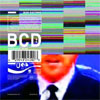 Bush Doctrine is Kirk's first release as BioChemical Dread, and is anxiously described as "an incendiary sonic polemic against oily greed mongering and cultural ignorance," and looking at titles like "False King of the Earth," "King of Baghdad," "Where Is Mr. Sam?," "Zero Democracy Dub," and "I Got Weapons," that would make sense. Musically, this is probably one of the most challenging releases of Kirk's in a long time, threadding non-Western rhythms, wiry radio samples, voices, wind instruments, and cutting things up into a hefty beat soup with tasty, buzzing noise elements. Kirk flip-flops around styles from intense, high energy tunes to abrasive guitar-ish rocking tunes and slowed down dub numbers, delicately matching hypnotic, classy beats with strong melodies with ample noises. Listening to the tunes and -not- hearing vicious anti-war anti-government samples to match his apparent sentiments is a let down, however, as I feel that the packaging (with the song titles and a G. W. Bush cut up on the front) raises the levels of anticipation. I want attitude, I want guts, I want to watch an accompanying set of visuals with things that will make my stomach turn. Perhaps I'll just have to play this album while watching something awful like Fox News or listening to Democracy Now. - Jon Whitney
Bush Doctrine is Kirk's first release as BioChemical Dread, and is anxiously described as "an incendiary sonic polemic against oily greed mongering and cultural ignorance," and looking at titles like "False King of the Earth," "King of Baghdad," "Where Is Mr. Sam?," "Zero Democracy Dub," and "I Got Weapons," that would make sense. Musically, this is probably one of the most challenging releases of Kirk's in a long time, threadding non-Western rhythms, wiry radio samples, voices, wind instruments, and cutting things up into a hefty beat soup with tasty, buzzing noise elements. Kirk flip-flops around styles from intense, high energy tunes to abrasive guitar-ish rocking tunes and slowed down dub numbers, delicately matching hypnotic, classy beats with strong melodies with ample noises. Listening to the tunes and -not- hearing vicious anti-war anti-government samples to match his apparent sentiments is a let down, however, as I feel that the packaging (with the song titles and a G. W. Bush cut up on the front) raises the levels of anticipation. I want attitude, I want guts, I want to watch an accompanying set of visuals with things that will make my stomach turn. Perhaps I'll just have to play this album while watching something awful like Fox News or listening to Democracy Now. - Jon Whitney
samples:
We know that sometimes these CDs are somewhat challenging to find, which is why we have a community section which can be used to obtain nearly everything available on this site. |